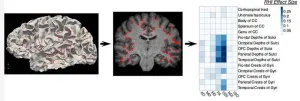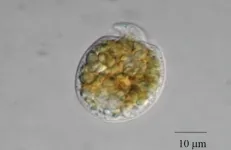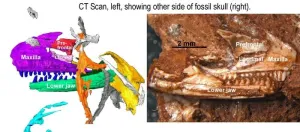(Press-News.org) The Ministry of Science and ICT (MSIT), headed by Minister Yoo Sang-im, held the launch ceremony for the "AI Safety Institute" (AISI) on Wednesday, November 27, at the Pangyo Global R&D Center.
At the "AI Seoul Summit"last May, leaders from 10 countries recognized safety as a key component of responsible AI innovation and emphasized the importance of establishing AI safety institutes and fostering global collaboration for safe AI. President Yoon Suk Yeol also expressed his commitment, stating, "We will work towards establishing an AI safety institute in Korea and actively participate in a global network to enhance AI safety." After thorough preparations regarding the institute's organization, budget, personnel, and functions, the AI Safety Institute has now been officially launched.
The AISI is a dedicated organization established within ETRI to systematically and professionally address various AI risks, including technological limitations, human misuse, and potential loss of control over AI. As Korea's hub for AI safety research, the AISI will facilitate collaborative research and information sharing among industry, academia, and research institutes in the field of AI safety. Furthermore, as a member of the "International Network of AI Safety Institutes" (comprising 10 countries, launched on November 21), the AISI is committed to taking a responsible role in strengthening global collaboration for safe AI. Through these efforts, the AISI aims to develop competitive technologies, nurture skilled professionals in the AI safety sector, and advance AI safety policies, including their development and refinement, based on scientific research data.
The launch ceremony brought togetherkey government officials, including Yoo Sang-im, Minister of Science and ICT; Yeom Jae-ho, Vice Chair of the National AI Committee; and Lee Kyung-woo, Presidential Secretary for AI and Digital. Over 40 prominent figures from the AI industry, academia, and research sectors also attended, such as Bae Kyung-hoon, Chief of LG AI Research; Oh Hye-yeon, Director of the KAIST AI Institute; Lee Eun-ju, Director of the Center for Trustworthy AI at Seoul National University; and Bang Seung-chan, President of the Electronics and Telecommunications Research Institute (ETRI).
At the event, Professor Yoshua Bengio, a globally renowned AI scholar and Global Advisor to the National AI Committee, congratulated the Korean government on establishing the AI Safety Institute in alignment with the Seoul Declaration. He emphasized the Institute's critical roles, including (1) researching and advancing risk assessment methodologies through industry collaboration, (2) supporting the development of AI safety requirements, and (3) fostering international cooperation to harmonize global AI safety standards. Additionally, the directors of AI safety institutes from the United States, the United Kingdom, and Japan delivered congratulatory speeches, stating, "We have high expectations for Korea’s AI Safety Institute" and emphasizing "the importance of global collaboration in AI safety."
Kim Myung-joo, the inaugural Director of the AISI, outlined the Institute's vision and operational plans during the ceremony. In his presentation, he stated, "The AISI will focus on evaluating potential risks that may arise from AI utilization, developingand disseminating policies and technologies to prevent and minimize these risks, and strengthening collaboration both domestically and internationally." Director Kim emphasized, "The AISI is not a regulatory body but a collaborative organization dedicated to supporting Korean AI companies by reducing risk factors that hinder their global competitiveness."
At the signing ceremony for the "Korea AI Safety Consortium" (hereinafter referred to as the "Consortium"), 24leading Korean organizations from industry, academia, and research sectors signed a Memorandum of Understanding (MOU) to promote mutual cooperation in AI safety policy research, evaluation, and R&D. The AISI and Consortium member organizations will jointly focus on key initiatives, including the research, development, and validation of an AI safety framework (risk identification, evaluation, and mitigation), policy research to align with international AI safety norms, and technological collaboration on AI safety. Moving forward, they plan to refine the Consortium's detailed research topics and operational strategies. The member organizations also presented their expertise in AI safety research and outlined their plans for Consortium activities, affirming their strong commitment to active collaboration with the AISI.
< Participating Organizations in the "AI Safety Consortium" >
Industry
▪ Naver (Future AI Center), KT (Responsible AI Center), Kakao (AI Safety), LG AI Research, SKT (AI Governance Task Force), Samsung Electronics, Konan Technology, Wrtn Technologies, ESTsoft, 42Maru, Crowdworks AI, Twelve Labs, Liner
Academia
▪Seoul National University (Center for Trustworthy AI), KAIST (AI Fairness Research Center), Korea University (School of Cybersecurity), Sungkyunkwan University (AI Reliability Research Center), Soongsil University (AI Safety Center), Yonsei University (AI Impact Research Center)
Research Institutes
▪Korea AISI, TTA (Center for Trustworthy AI), NIA (Department of AI Policy), KISDI (Department of Digital Society Strategy Research), IITP (AI텱igital Convergence Division), SPRi (AI Policy Research Lab)
Minister Yoo Sang-im of the MSIT emphasized, "AI safety is a prerequisite for sustainable AI development and one of the greatest challenges that all of us in the AI field must tackle together." He noted, "In the short span of just one year since the AI Safety Summit in November 2023 and the AI Seoul Summit in May 2024, major countries such as the United States, the United Kingdom, Japan, Singapore, and Canada have established AI safety institutes, creating an unprecedentedly swift and systematic framework for international AI safety cooperation." Minister Yoo further emphasized, "By bringing together the research capabilities of industry, academia, and research institutes through the AISI, we will rapidly secure the technological and policy expertise needed to take a leading role in the global AI safety alliance. We will actively support the AISI's growth into a research hub representing the Asia-Pacific region in AI safety."
###
About Electronics and Telecommunications Research Institute (ETRI)
ETRI is a non-profit government-funded research institute. Since its foundation in 1976, ETRI, a global ICT research institute, has been making its immense effort to provide Korea a remarkable growth in the field of ICT industry. ETRI delivers Korea as one of the top ICT nations in the World, by unceasingly developing world’s first and best technologies.
END
AI Safety Institute launched as Korea’s AI Research Hub
Located at the Pangyo Global R&D Center, the AISI begins full operations under the leadership of a director and a three-section system
2024-11-27
ELSE PRESS RELEASES FROM THIS DATE:
Air pollution linked to longer duration of long-COVID symptoms
2024-11-27
Exposure to air pollutants (PM2.5 and PM10) is associated with an increased risk of persistent long-COVID symptoms, partly due to its impact on the severity of the acute infection. This is the main conclusion of a study led by the Barcelona Institute for Global Health (ISGlobal), a centre supported by “la Caixa” Foundation, in collaboration with the Germans Trias i Pujol Research Institute (IGTP), and published in Environmental Health Perspectives.
Long-COVID is a heterogeneous condition in which symptoms like fatigue, breathlessness, and cognitive issues persist for months after ...
Soccer heading damages brain regions affected in CTE
2024-11-27
CHICAGO – Soccer heading may cause more damage to the brain than previously thought, according to a study being presented next week at the annual meeting of the Radiological Society of North America (RSNA).
Heading is a widely used technique in soccer where the players control the direction of the ball by hitting it with their head. In recent years, research has been done that suggests a link between repeated head impacts and neurodegenerative diseases, such as chronic traumatic encephalopathy (CTE).
“The potential effects of repeated head impacts in sport are ...
Autism and neural dynamic range: insights into slower, more detailed processing
2024-11-27
A new study has linked distinct neural and behavioral characteristics in autism spectrum disorder to a simple computational principle. Centered on the “dynamic range” of neurons, which reflects how gradually or sharply they respond to input, the study suggests that individuals with autism spectrum disorder have an increased dynamic range in their neuronal response, resulting in a more detailed but slower response to changes. This research defies previous descriptions of ASD as a “broken cog in the machine” and provides a deeper, richer account of the computational basis of ASD.
[Hebrew University of Jerusalem]– Researchers Dr. Yuval Hart and Oded ...
AI can predict study results better than human experts
2024-11-27
Large language models, a type of AI that analyses text, can predict the results of proposed neuroscience studies more accurately than human experts, finds a new study led by UCL (University College London) researchers.
The findings, published in Nature Human Behaviour, demonstrate that large language models (LLMs) trained on vast datasets of text can distil patterns from scientific literature, enabling them to forecast scientific outcomes with superhuman accuracy.
The researchers say this highlights ...
Brain stimulation effectiveness tied to learning ability, not age
2024-11-27
As we age, our cognitive and motor functions deteriorate, which in turn affects our independence and overall quality of life. Research efforts to ameliorate or even completely abolish this have given rise to technologies that show a lot of promise.
Among these is non-invasive brain stimulation: a term encompassing a set of techniques that can affect brain functions externally and noninvasively, without the need for surgery or implants. One such promising technique, in particular, is anodal transcranial direct current stimulation (atDCS), which uses ...
Making a difference: Efficient water harvesting from air possible
2024-11-27
Harvesting water from the air and decreasing humidity are crucial to realizing a more comfortable life for humanity. Water-adsorption polymers have been playing a key part in atmospheric water harvesting and desiccant air conditioning, but desorption so that the polymers can be efficiently reused has been an issue. Now, Osaka Metropolitan University researchers have found a way to make desorption of these polymers more efficient.
Usually, heat of around 100°C is required to desorb these polymers, but Graduate School of Engineering student Daisuke Ikegawa, Assistant Professor Arisa Fukatsu, ...
World’s most common heart valve disease linked to insulin resistance in large national study
2024-11-27
A large new population study of men over 45 indicates insulin resistance may be an important risk factor for the development of the world’s most common heart valve disease – aortic stenosis (AS).
Published today in the peer-reviewed journal Annals of Medicine, the findings are believed to be the first to highlight this previously unrecognised risk factor for the disease.
It is hoped that by demonstrating this link between AS and insulin resistance – when cells fail to respond effectively to insulin and the body makes more than necessary to maintain normal glucose ...
Study unravels another piece of the puzzle in how cancer cells may be targeted by the immune system
2024-11-27
Effective immunity hinges on the ability to sense infection and cellular transformation. In humans, there is a specialised molecule on the surface of cells termed MR1. MR1 allows sensing of certain small molecule metabolites derived from cellular and microbial sources; however, the breadth of metabolite sensing is unclear.
Published in PNAS, researchers at the Monash University Biomedicine Discovery Institute have identified a form of Vitamin B6 bound to MR1 as a means of engaging tumour-reactive immune cells. The work involved an international collaborative team co-led by researchers from the University of Melbourne.
According ...
Long-sought structure of powerful anticancer natural product solved by integrated approach
2024-11-27
A collaborative effort by the research groups of Professor Haruhiko Fuwa from Chuo University and Professor Masashi Tsuda from Kochi University has culminated in the structure elucidation and total synthesis of anticancer marine natural products, iriomoteolide-1a and -1b. These natural products were originally isolated from the marine dinoflagellate collected off the Iriomote Island, Okinawa, Japan.
Because of its potent anticancer activity, iriomoteolide-1a is an intriguing natural product that attract immense attention from the chemical community around the globe. ...
World’s oldest lizard wins fossil fight
2024-11-27
A storeroom specimen that changed the origins of modern lizards by millions of years has had its identity confirmed.
The tiny skeleton, unearthed from Triassic-aged rocks in a quarry near Bristol, is at least 205 million years old and the oldest modern-type lizard on record.
Recently, the University of Bristol team’s findings came under question, but fresh analysis, published today in Royal Society Open Science, proves that the fossil is related to modern anguimorphs such as anguids and monitors. The discovery ...
LAST 30 PRESS RELEASES:
Why do we get a skip in our step when we’re happy? Thank dopamine
UC Irvine scientists uncover cellular mechanism behind muscle repair
Platform to map living brain noninvasively takes next big step
Stress-testing the Cascadia Subduction Zone reveals variability that could impact how earthquakes spread
We may be underestimating the true carbon cost of northern wildfires
Blood test predicts which bladder cancer patients may safely skip surgery
Kennesaw State's Vijay Anand honored as National Academy of Inventors Senior Member
Recovery from whaling reveals the role of age in Humpback reproduction
Can the canny tick help prevent disease like MS and cancer?
Newcomer children show lower rates of emergency department use for non‑urgent conditions, study finds
Cognitive and neuropsychiatric function in former American football players
From trash to climate tech: rubber gloves find new life as carbon capturers materials
A step towards needed treatments for hantaviruses in new molecular map
Boys are more motivated, while girls are more compassionate?
Study identifies opposing roles for IL6 and IL6R in long-term mortality
AI accurately spots medical disorder from privacy-conscious hand images
Transient Pauli blocking for broadband ultrafast optical switching
Political polarization can spur CO2 emissions, stymie climate action
Researchers develop new strategy for improving inverted perovskite solar cells
Yes! The role of YAP and CTGF as potential therapeutic targets for preventing severe liver disease
Pancreatic cancer may begin hiding from the immune system earlier than we thought
Robotic wing inspired by nature delivers leap in underwater stability
A clinical reveals that aniridia causes a progressive loss of corneal sensitivity
Fossil amber reveals the secret lives of Cretaceous ants
Predicting extreme rainfall through novel spatial modeling
The Lancet: First-ever in-utero stem cell therapy for fetal spina bifida repair is safe, study finds
Nanoplastics can interact with Salmonella to affect food safety, study shows
Eric Moore, M.D., elected to Mayo Clinic Board of Trustees
NYU named “research powerhouse” in new analysis
New polymer materials may offer breakthrough solution for hard-to-remove PFAS in water
[Press-News.org] AI Safety Institute launched as Korea’s AI Research HubLocated at the Pangyo Global R&D Center, the AISI begins full operations under the leadership of a director and a three-section system



